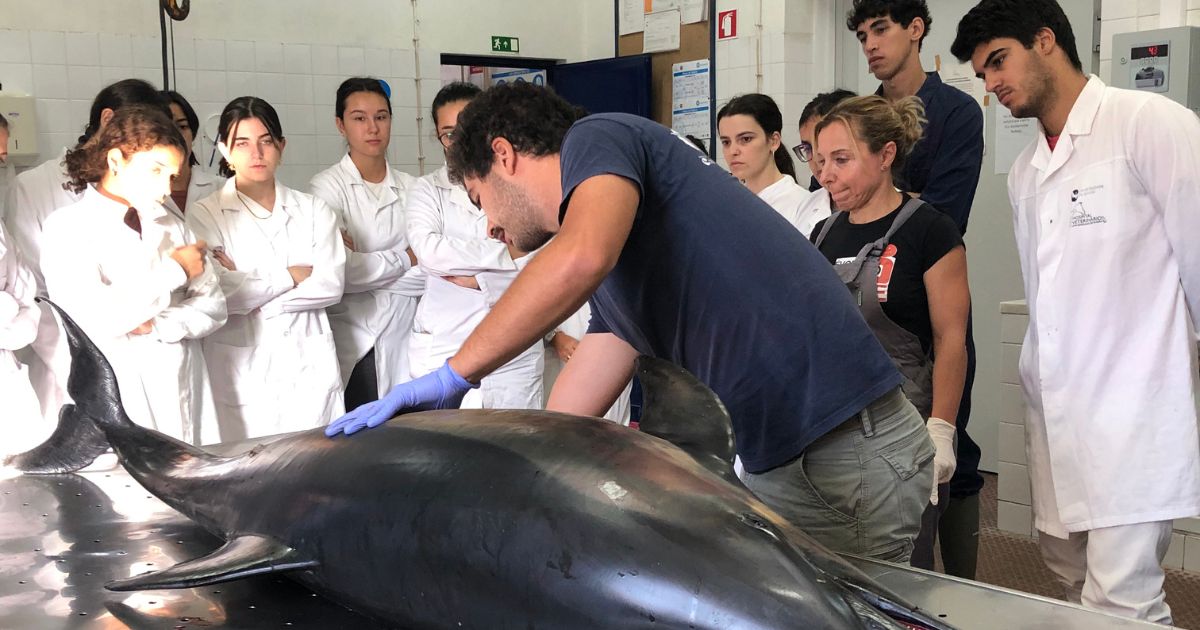Open lecture at the Veterinary Hospital of the University of Évora brings together students and researchers
On 17 October, the Veterinary Hospital of the University of Évora (HVUÉ) welcomed the ARROJAL project team – Support for the National Stranding Network – Alentejo Regional Network for an open class dedicated to the necropsy of a common dolphin (Delphinus delphis), a specimen that recently washed up dead on the Alentejo coast. 
The session was led by Sandra Branco, a veterinarian and lecturer in the Department of Veterinary Medicine, and Francisco Neves, a marine biologist and researcher at MARE, with the support of researchers David Jacinto, Beatriz Reis and Maria Inês Seabra, from the ARROJAL team, and lecturer Antonieta Alvarado, also from the Department of Veterinary Medicine.
Around 50 veterinary medicine students took part in this activity, observing the entire necropsy procedure and deepening their knowledge of the biology and ecology of marine mammals, the main causes of mortality and the essential role of stranding networks in the conservation of these species.
This was an unprecedented initiative at the Veterinary Hospital of the University of Évora, providing an enriching educational experience that brought students closer to scientific research in this area, particularly with regard to the collection and analysis of large marine animals, as well as the processes of necropsy and determination of cause of death.
The collaboration between the ARROJAL project and HVUÉ reflects the commitment of the University of Évora's research centres to practical training, applied research and the conservation of marine biodiversity.
More information about the ARROJAL project is available HERE
Photographs by David Jacinto
Text by Patrícia Carvalho
